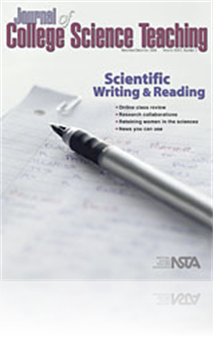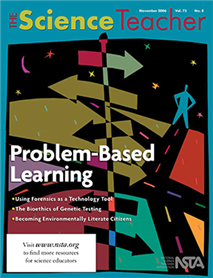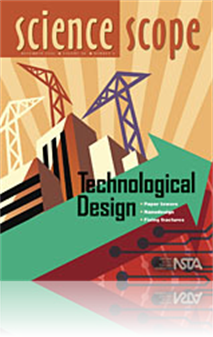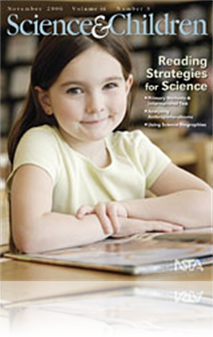All Resources
Journal Article
Performing inquiry should enhance the intellectual development of students on numerous levels. We evaluate whether inquiry-based activities elicit inquiry behaviors by comparing these activities with traditional review sessions. We find that both inq...
Journal Article
All artists are chemists. Artists understand and study the properties of specific materials and find ways to explore these properties to express views of themselves and the world around them. In this curriculum unit, chemistry students create origina...
Journal Article
The process of a successful undergraduate student-faculty research collaboration involving a student with documented learning disabilities is detailed. As the student developed research skills, she also learned how to develop her own learning strateg...
Journal Article
The misconceptions that students bring with them, or that arise during instruction, are a critical barrier to learning. Implicit-confidence tests, a simple modification of the multiple-choice test, can be used as a strategy for recognizing student mi...
Journal Article
The CSI Effect: Changing The Face of Science
Until recently, the vast majority of female student images of scientists were versions of white males working alone in laboratory settings (Barman et al. 1997). As a result, the authors asked the question, “What phenomenon is responsible for the re...
Journal Article
As elementary students progress from learning to read toward reading to learn, it is vital that they become strategic readers. A strategic reader is one who understands when and how to use a strategy in order to comprehend text. While some students...
Journal Article
Trade Books for Learning: An Author's View
What other ecosystem is as mysterious and compelling as the rain forest and home to innumerable living things that children may never have seen or heard of before? Answer: mangroves! These fascinating and important habitats are another avenue to te...
Journal Article
Scope on Safety: Waste not, want not
Planning chemical use and disposal is critical to a safe laboratory environment. It is irresponsible to simply go out and purchase laboratory chemicals without considering why they are needed and how they will be disposed of when they are no longer n...
Journal Article
Editorial: Spontaneous Generation (November 2006)
The continuing development and renewal of a capable, fair (and wise) faculty must be one of the first priorities of the existing professoriate. In the sciences, where our disciplines frighten even the other departments on campus, the situation may be...
Journal Article
Using Forensics Science Problems As Teaching Tools
As teachers of high school students, we constantly struggle to engage students in scientific exploration so they can master concepts and appreciate the nature of science. By providing an air of mystery and glamour, forensic science engages even reluc...







